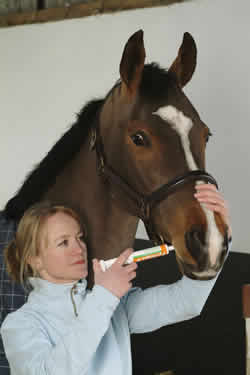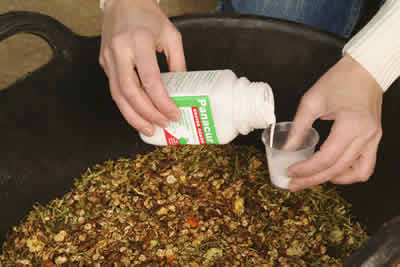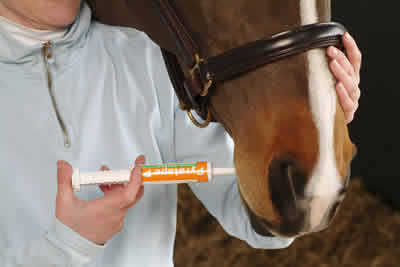
|
Autumn
Worming For Your Horse
With
the nights drawing in, horse owners should be thinking of
treating their horses at the end of the grazing season for
tapeworm and small redworms.
Tapeworm
is known to infect horses throughout the year because its
host, the forage mite, survives on pasture, hay and bedding.
Intervet's 3-year worming plan advises horse owners to administer
a double dose of Pyratape P, which contains pyrantel as its
active ingredient, at six monthly intervals - in September,
at the end of the grazing season, and in March, at the beginning
of the grazing season. Pyratape P is also a routine wormer
and will remove the adult stages of large redworms, small
redworms, roundworm and pinworms found in the gastro-intestinal
tract.
|
To
eliminate small redworm larvae acquired during the spring and summer
months, the 3-year worming plan advises horse owners to administer
Panacur Equine Guard, which contains fenbendazole as its active
ingredient. The product is the only wormer licensed to remove all
stages of redworm larvae from the gut wall and it should be used
for five consecutive days in November to remove encysted redworm
larvae acquired during the spring and summer months and in February
to remove encysted redworm larvae acquired during winter grazing.

Panacur Equine Guard being added to feed

Pyratape P being administered
A
five-day course of Panacur Equine guard should also be given to
new horses, whatever the time of year, with a double dose of Pyratape
P given on the sixth day.
For
further information about Panacur and Pyratape P, please contact
the Intervet literature line on 0800 169 5351.
.
|







